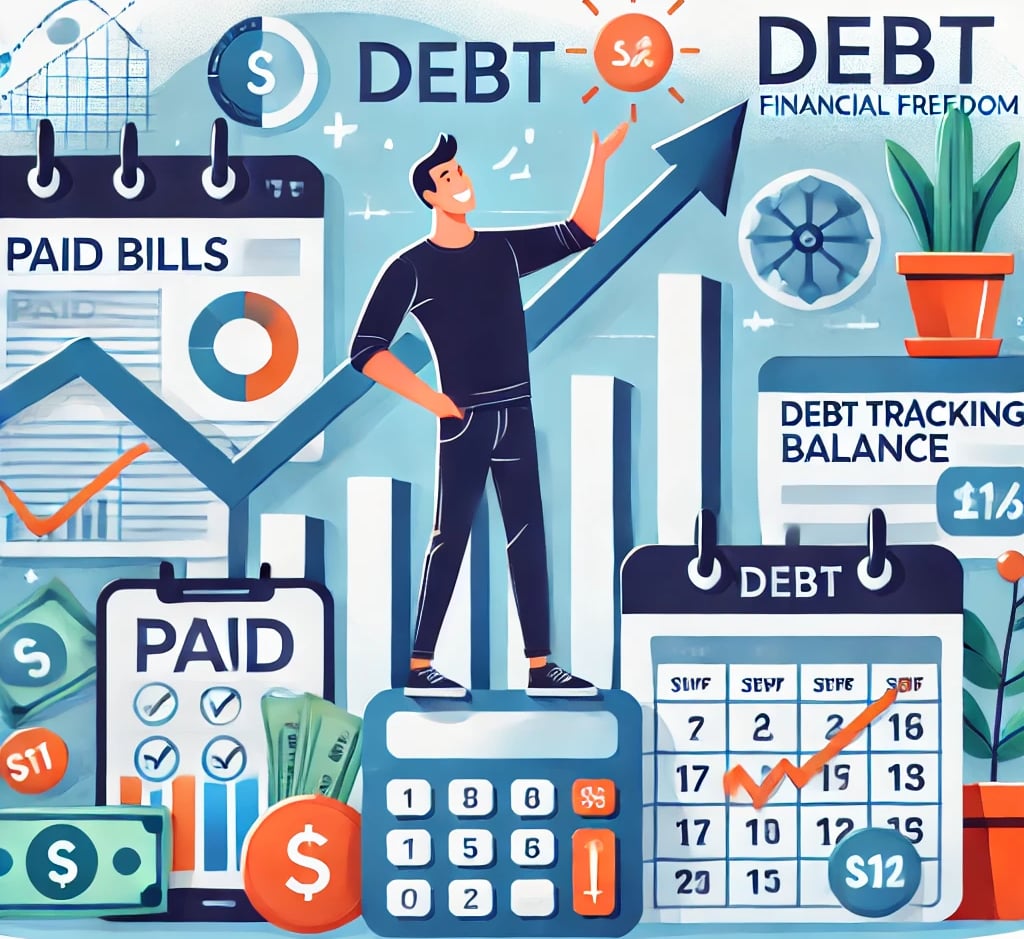Debt Management Tips: Regain Financial Freedom
3/22/20252 min read


Debt Management Tips: How to Take Control and Regain Financial Freedom
Introduction
Debt can be overwhelming, but it doesn’t have to define your financial future. With the right strategies, you can take control of your debt, reduce financial stress, and work your way toward long-term financial freedom. In this blog, we’ll walk you through practical debt management tips that anyone can implement.
1. Understand Your Debt
Start by listing all your debts:
Credit cards
Personal loans
EMIs
Outstanding bills or dues
Note the outstanding amounts, interest rates, and minimum payments to get a clear picture.
2. Prioritize High-Interest Debt
Tackle debts with the highest interest rates first (like credit cards).
This reduces the total amount you pay over time
Consider the avalanche method (high to low interest)
Alternatively, the snowball method (smallest to largest balances) works well for quick wins.
3. Create a Realistic Repayment Plan
Set a monthly repayment goal
Adjust your budget to allocate more toward debt
Avoid taking on new debt while you’re paying off existing ones
4. Consolidate Your Debts (If Needed)
If you have multiple debts, consider consolidation:
Personal loan at a lower interest rate
Balance transfer credit cards
One EMI to manage instead of many
5. Negotiate with Creditors
Don’t hesitate to talk to your lenders:
Request a lower interest rate
Ask for revised payment terms or a moratorium
Many creditors offer restructuring plans to help honest borrowers.
6. Build an Emergency Fund
An emergency fund prevents you from falling back into debt.
Start small (₹10,000–₹25,000) and build up
Use it only for real emergencies, not lifestyle upgrades
7. Avoid Triggers That Lead to Debt
Identify habits or situations that push you toward overspending:
Impulse purchases
Buy now, pay later schemes
Peer pressure or lifestyle inflation
Use tools like spending trackers and budgeting apps to stay in control.
8. Seek Professional Help (If Needed)
If your debt feels unmanageable:
Contact a financial advisor or credit counselor
Explore debt management plans (DMPs)
It’s okay to ask for help—acting early can save your finances.
Final Thoughts
Debt is temporary—but good financial habits are forever. By staying consistent, planning strategically, and being honest about your situation, you can get out of debt and build a more secure financial future.
Need expert help managing your debt and rebuilding your finances? Connect with One Solution for tailored financial guidance that works.
About One Solution
Quick Links
Contact Info
One Solution — Your trusted partner for financial success.
📍 F17, Grand Plaza, Paltan Bazar
Guwahati, Kamrup (M), Assam
India, Pin: 781008
📞 9650072280
© 2025 One Solution. All Rights Reserved.
